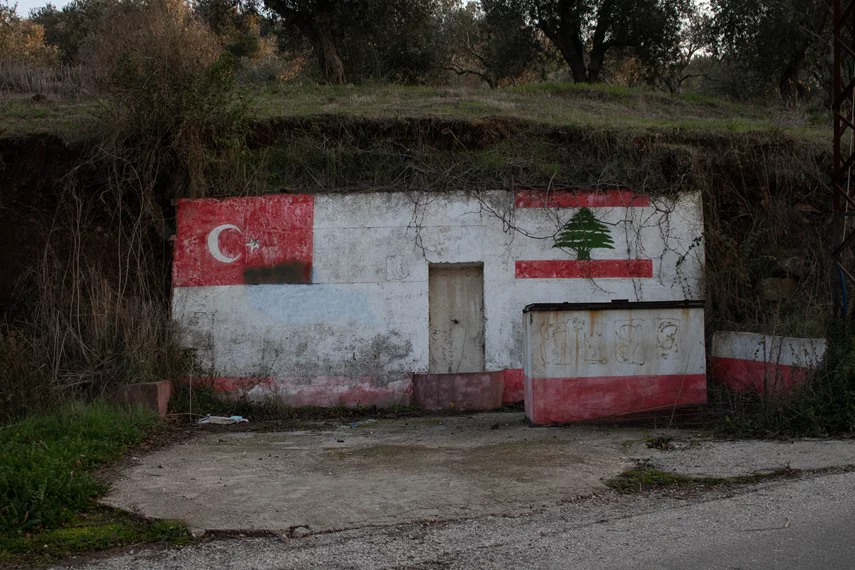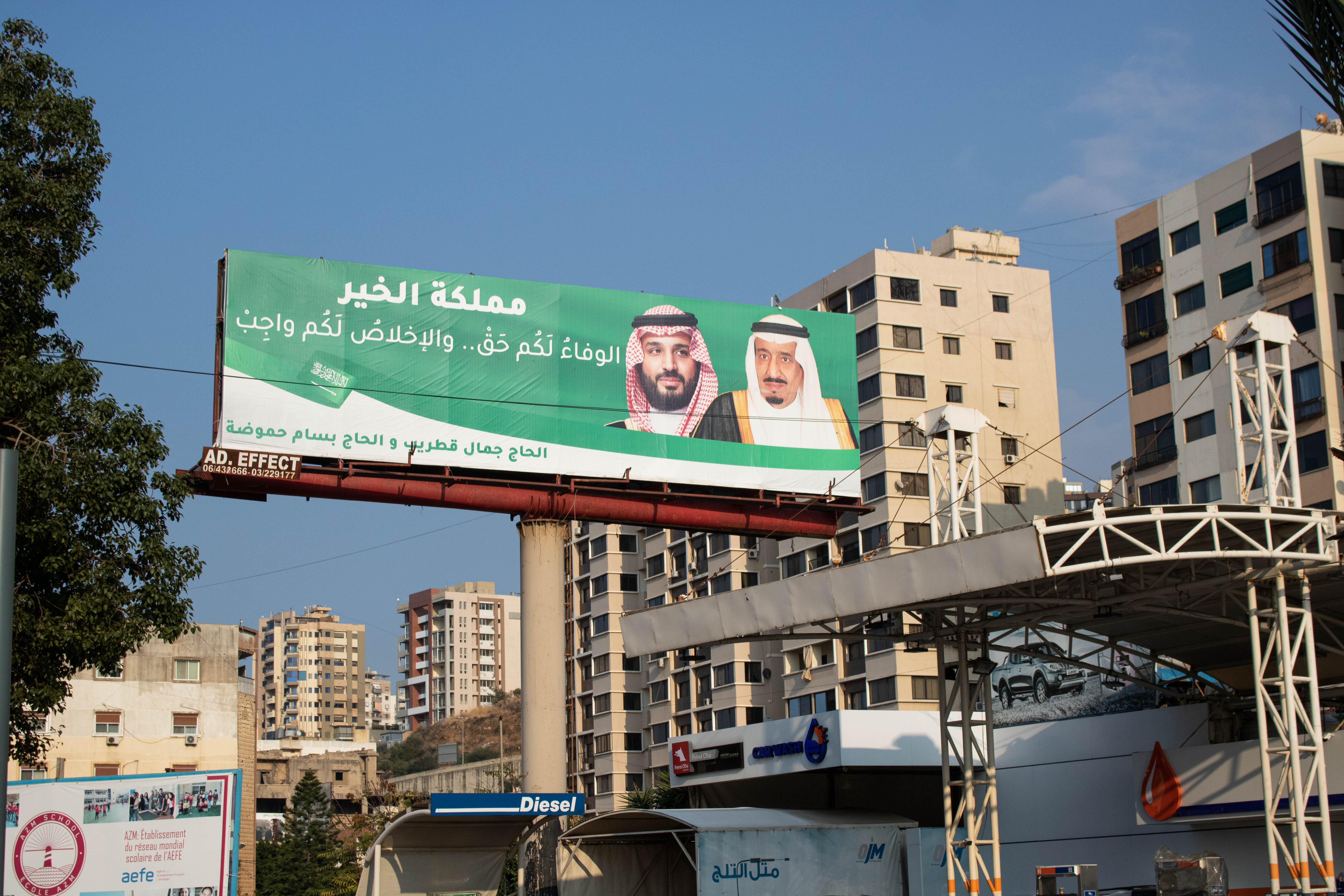As the Gulf focuses on Syria, Turkey eyes an opportunity in Lebanon
As the Gulf focuses on Syria, Turkey eyes an opportunity in Lebanon


In Tripoli’s twisting streets, a few areas proudly boasted Turkish flags and images of the country’s president, Recep Tayyip Erdogan, proclaiming their support for Lebanon’s former Ottoman ruler.
However, these scenes were often relegated to a select few parts of the city, while large billboards thanking Gulf countries like Saudi Arabia and its de facto ruler, Crown Prince Mohammad bin Salman (MBS), were much more common sights on the main roads and squares.
With the fall of the Assad regime in Syria, though, on December 8, 2024, the Gulf Arab nations have begun further shifting their attention away from Lebanon to focus on the unprecedented changes taking place next door after over five decades of rule by the Assad family. No longer was Syria a place where the Gulf’s efforts had minimal impact. Now, these oil-rich nations could potentially influence what was to come.
“When it comes to regional influence, Gulf countries would rather deal with Syria,” Hilal Khashan, a political science professor at the American University of Beirut, told The Beiruter. “To control the Middle East, you need to have influence in Syria. Having influence in Lebanon doesn’t make any difference.”
As Syrian President Ahmad al-Sharaa, who headed the Islamist group Hayat Tahriri al-Sham, which led the offensive that overthrew the regime, and formerly known by his nom de guerre Abu Mohammad al-Jolani, is looking to consolidate power and unite the country under one banner, the Gulf countries see a prime opportunity to shape the future of the region.
Tempering the flame
The Gulf states, namely Saudi Arabia and the United Arab Emirates, have had a contentious relationship with Lebanon over the decades. From the 1970s until 2005, Syria, which occupied Lebanon, was the real power in the country and, from 2005 until recently, Iran and Hezbollah held the biggest influence in Lebanon, much to the chagrin of the Gulf powers.
“Saudi Arabia is interested in Lebanon to the extent that it can drive Iran and Hezbollah out of the political equation of Lebanon,” Khashan explained. “Lebanon is not a central country; it is not a country that invites much foreign intervention. The Lebanese are a highly demanding people. When they deal with foreign countries, they ask for something. They ask for money; they ask for foreign aid.”
In late 2021, following statements by the then-information minister, George Kordahi, on the Saudi offensive against the Houthis in Yemen, Saudi Arabia, the UAE, Bahrain and Kuwait recalled their ambassadors and banned Lebanese imports, something that was only reconciled years later.
Still, despite the diplomatic turmoil, the GCC countries remained extremely important for the Lebanese political class, who needed them for funding as the country was going through one of the worst economic crises in over a century, and remained popular amongst Lebanon’s Sunnis, who viewed them as their benefactors and protectors, much like the Iranians for the Shia.
“Traditionally, Saudi Arabia presented itself as the defender of Lebanese Sunnis, therefore, they had a vested interest in the Sunnis of Lebanon as a countervailing force to Lebanese Shias and the Saudis feel that by supporting the Sunnis, they can establish a political equilibrium in Lebanon. But that is the extent. Saudi Arabia has no ambitions and no interest in Lebanon beyond that,” Khashan said.
Instead, the Saudis would rather focus on neighboring countries like Iraq and Yemen where developments could have a more immediate impact on them.
When the Houthis took over much of the country after the popular uprising that overthrew Yemen’s longtime ruler, Ali Abdullah Salah, the Saudis and Emiratis launched a devastating campaign against them over fears that the Houthis, which are backed by Iran, could pose a threat to them since they share borders. The offensive ultimately failed to unseat the Houthis which still control large portions of Yemen.
On a regional level, though, Khashan said that if the Saudis and Emiratis needed to deal with anyone, they would much rather focus their attention on Syria.
Part of this reasoning stems from the new government that took power following Bashar al-Assad’s fall.
Even though the Gulf countries are staunchly Islamic nations, they keep the hardliners and extremists in check with MBS going as far as to seek to radically change the global perception of Saudi Arabia from one that sponsors Islamic extremism to one that is moderate and invites tourism and investment. An Islamist government in Syria could jeopardize all of that.
“The Saudis are not interested in the success of an Islamic revolution in any Arab country because that could have a spillover effect in Saudi Arabia,” Khashan stated. “The Saudis are trying to transform Syria and the new leadership into a secular state to ensure that they maintain control over Syria.”
“Saudi Arabia has a very cautious and defensive foreign policy that has, for years, aimed at pacifying the region and preventing the appearance or the ascendancy of any movement,” he added.
There is also a financial incentive for focusing so much of their efforts on Syria.
After 14 years of civil war, roughly half of the country’s infrastructure is in ruin, with an estimated $250 to $400 billion needed to rebuild. This could present countries like Saudi Arabia and the UAE with lucrative financial opportunities that would also allow them to establish a firm presence in the country
This Gulf shift in focus on Syria could come at a price, however, with Turkey, after already gaining a foothold in Syria from backing the rebels for years, now able to look at potentially expanding its role in Lebanon and fill in the gaps left by the Saudis and other Gulf countries.
 A billboard expressing support for Saudi Arabia's King Salman and Crown Prince Mohammad bin Salman next to a gas station in Tripoli on November 22, 2021. (Nicholas Frakes/The Beiruter)
A billboard expressing support for Saudi Arabia's King Salman and Crown Prince Mohammad bin Salman next to a gas station in Tripoli on November 22, 2021. (Nicholas Frakes/The Beiruter)
Expansion, but with limits
For years, Turkey’s influence in Lebanon was relegated to a few neighborhoods in Sunni-majority cities like Tripoli and Sidon and the Turkmen villages in Akkar, such as Kouachra and Aydamoun.
It was impossible for Turkey to compete with the money coming in from the Gulf or to match the role that these countries played as Lebanon’s Sunni “protectors.”
But, as Gulf interest in Lebanon has waned over the years and with the monumental shift in regional dynamics since Hamas’s October 7 attack on Israel, this has opened the door to Turkey being able to potentially play a larger role in Lebanon.
“With the new government in Syria, things are again changing and after October 7 and the changing regional dynamics, they have been boosting Turkey’s prospects in Lebanon,” Gönül Tol, the director of the Middle East Institute's Turkey program, told The Beiruter. “Now that Hezbollah has been weakened, Iran has been weakened, Turkey sees an opening for a more forceful influence in Lebanon. We can also add that the Gulf countries, like Saudi Arabia, aren’t playing as forceful of a role as Turkey is.”
Erdogan and his government have long sought to portray their role in Lebanon as being cross-sectarian, but, as Tol noted, most of their work has been in Lebanon’s Sunni communities. But with the Turkish backing of Islamist groups in Syria following the uprising and civil war, this made it harder for the Turkish leader and his Justice and Development Party (AKP) to make this argument.
Even as Hezbollah and Iran are weakened after their recent wars with Israel, the Sunni community is likely to remain the sole community that is receptive to Turkish advances.
This could still serve Turkey’s interests, though, in gaining a major foothold in the eastern Mediterranean region, something it has struggled to do up to this point.
According to Tol, Erdogan is looking to make Turkey into a major regional energy hub and faced many challenges with the Assad regime in establishing a presence in the eastern Mediterranean. With the regime now gone and a new government more favorable to Turkey in power, this barrier is no longer there.
Turkey also has bittersweet relations with Israel, which have only worsened since the start of the war in Gaza, making Lebanon that much more important to Erdogan.
However, previously, whenever it came to Lebanon, Hezbollah and other Hezbollah-allied groups would challenge Turkey’s efforts to cultivate closer relations with Lebanon.
“Now that’s not an influential factor anymore,” Tol explained. “Cultivating these close partnerships, both military, economic and energy partnerships with Lebanon, has become a cornerstone of [Turkish] regional policy as well as energy policy.”
Erdogan would also like to see Turkey be able to achieve more significant political influence in Lebanon, such as being able to weigh in on who it opposes to take the helm of the prime minister. This, however, comes with a significant caveat.
“It all depends on where the Gulf state see their future in Lebanon,” Tol said.
Just as Lebanon is dependent on Gulf support, Turkey also looks to the Saudis and Emiratis for financial, political and diplomatic backing. Alienating them to expand Turkish influence in Lebanon would be contrary to Erdogan’s domestic interests.
Erdogan wants to play a dominant role in the region, Tol stated. He wants to play a dominant role in Syria with more military bases in the country and for Turkish companies to be dominant in rebuilding Syria but all of this is limited to how much the Gulf countries are willing to allow before it starts causing problems for the Turkish president.
“If the Saudis see that as a threatening thing, there are limits to what Erdogan is willing to do because alienating the Emiratis and the Saudis is not in his interest,” Tol said.


